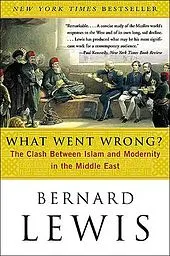Nile Hilton Incident (Arabic/Egyptian; 2017)
Written/Directed: Tarik Saleh
 Every time a new law comes into force, guess who the happy people are. No, not the law-abiding citizens or the patriots who want to see rule and order respected in this country. It is the lowly local enforcers - the front-liners who are there to ensure that the law is respected. There are the first to detect any wrongdoing at the ground level and could squash a ticket, at a nominal fee, of course.
Every time a new law comes into force, guess who the happy people are. No, not the law-abiding citizens or the patriots who want to see rule and order respected in this country. It is the lowly local enforcers - the front-liners who are there to ensure that the law is respected. There are the first to detect any wrongdoing at the ground level and could squash a ticket, at a nominal fee, of course.
Everyone is happy. The poorly paid constables and local council employees get on by tying up loose ends - maybe a child's birthday present or that emergency trip to the hometown.
The problem is that this kind of 'closing an eye' or 'I scratch your back, you scratch mine' attitude has infiltrated all strata of the civil service. What we see now are the accusations of so-and-so of the higher pecking order being charged for siphoning off funds and dishonestly performing their civil duties. Invariably, these events will merely turn up to be a storm in a teacup.
Fearing a backlash to the whole government machinery, the powers-that-be would hush everything. After all, the foxes appointed to guard the coop feel it is the ordained right to benefit from their post after years of hard work and sacrifice. With the increasing cost of living and exposure to the high life, they have only a few more years to ensure continued prosperity in their retired life and their offspring. Whatever is said and done, the rot is across the board. The words integrity, efficiency and civil service cannot be strung in the same sentence.
If we remember the early years of the 21st century in the Middle East, this catalysed the Arab Spring movement. What started as a jobless graduate failing to secure a hawker site in Libya and immolating himself in protest, the governments raised up to get their acts together. So, for a short while, at least.
In Egypt, in 2011, in Tahrir Square specifically, the people's power managed to oust Hosni Mubarak, the undisputed strongman of Egypt. Using this event as a build to the climax, this film showcases the widespread corruption and culture of protecting the high-heeled and politicians in the law enforcement units in Egypt.
Noredin, a police officer obviously not at the highest of the virtue scale, is called to investigate the death of a singer at Nile Hilton. Noredin has no qualms about pocketing extra cash from his dead victims and looking the other way if offenders are willing to dole out a little spare money.
Slowly he realises that the whole force is corrupt to the core. Many of his superiors are on the take. Many high-level politicians are linked to the crime he is investigating, and he is helpless in completing his investigations. Vice is widespread, and pimps are kings.
A Sudanese housekeeping assistant who witnessed the murder, meanwhile, is on the run from the corrupt police and colluding thugs. The film climaxes at the Tahrir Square demonstrations. The whole debacle leaves a horrible aftertaste. The demonstration gives the image as if all the slime brewing in the trenches just bubbles over.
 Every time a new law comes into force, guess who the happy people are. No, not the law-abiding citizens or the patriots who want to see rule and order respected in this country. It is the lowly local enforcers - the front-liners who are there to ensure that the law is respected. There are the first to detect any wrongdoing at the ground level and could squash a ticket, at a nominal fee, of course.
Every time a new law comes into force, guess who the happy people are. No, not the law-abiding citizens or the patriots who want to see rule and order respected in this country. It is the lowly local enforcers - the front-liners who are there to ensure that the law is respected. There are the first to detect any wrongdoing at the ground level and could squash a ticket, at a nominal fee, of course. 






















